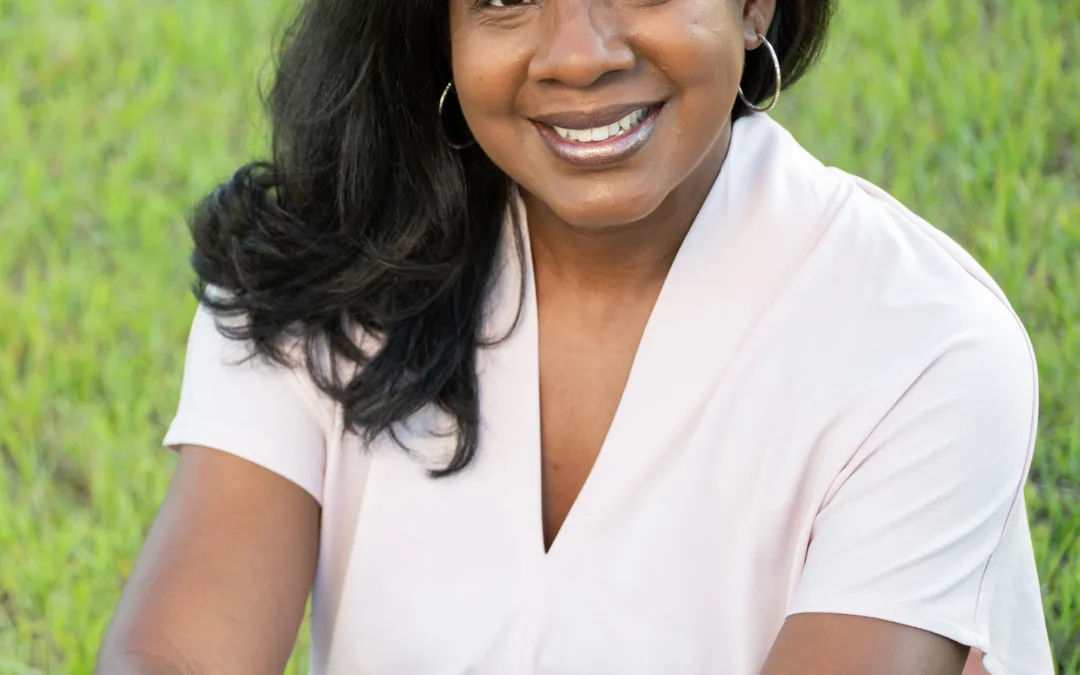
Overcoming Father Wounds
When it comes to father wounds, the actions and deeds of a father can attach themselves to the soul of a woman for her entire lifetime. They have the potential to suck the lifeblood out of her completely, leaving her just a shell of the woman she was intended to be. Periodically, the wounds haunt her like a recurring nightmare, or without warning they set off reactions in her brain and she may find herself blindsided by raw emotions: anger, depression, and grief.
While sitting in a therapy session, this very thing transpired. Not in me—in my counselor. We were separated by a large wooden desk that served as a reminder of the invisible client-counselor boundaries governing our relationship.
Monthly, I paid her so I could pour out my woes like water from a broken faucet. And no matter how devastating my personal accounts were, there was always an emotional barricade—and that desk—between us. She never showed feelings on either end of the continuum, which was fine; I was paying her not to.
On this particular visit I was tackling the subject of my father wounds. “I want to go out on a daddy-daughter date,” I said. “I want to be daddy’s little girl. How can God do that?” At the conclusion of my rant, I watched in amazement as my Christian counselor morphed into a daddy-wounded peer right before my eyes. My words must have triggered an undisclosed place in her heart, because she bulldozed right through the emotional and professional blockades she had erected. Her eyes filled with tears, her cheeks flushed, and she sniffled.
Before I knew it, she was engaged in a full-blown ugly cry, dabbing and wiping her face like it was her session and not mine. What in the world is happening? I thought but didn’t say. Here I was, staring at all of her accolades and accomplishments affixed to the wall, distinguishing her as someone certified to help me overcome my father wounds, and yet she was still dealing with some of her own. I almost got up and bypassed the wooden desk so I could hand her some Kleenex and attempt to console her. I opted not to, committed to the client-counselor boundaries that separated us.
Her response was a reminder: father wounds are absolutely unscrupulous, reducing all of us to little girls still nursing our pain in the bodies of grown women. Here she was, a professional woman and an accomplished author, fixed up and covered up but still wounded. She had an emotional hemorrhage that, to a certain degree, had been kept hidden, but that day my words outed her wounds in grand fashion.
Inadvertently, we return to the age at which we were wounded. Romanced by sorrow and wooed by our ache, we’re tempted to stay there. “Don’t leave,” our sadness says. “I need you,” our pain beckons. And like the lure of a really bad codependent relationship, we find ourselves stuck, addicted to our wounds. I’ve been here more times than I’d like to admit, and I have plenty of T-shirts to prove it.
What about you? How old were you when the sting of what your daddy did left its imprint on our heart? Two? Six? Twelve? Seventeen? How old are you now as you’re grappling with your wounds? It’s crazy to think of ourselves as young girls trapped in the body of a woman, but that’s who we become when we’re wounded, complete with pigtails and frilly socks.
The word of God reminds us that we do not have to remain in this state, stuck and paralyzed at the age we were when we first incurred the wounds. In Psalm 147:3 it says, “He heals the brokenhearted and binds up their wounds.” Although this Scripture is specifically referring to the exiles of Israel, I believe these words are applicable to women with father wounds. In this verse God is reminding us that our pain is not beyond His tremendous power. He is the Great Physician, able to reach into our past and heal our soul.
The Scripture says “He heals,” meaning this healing is ongoing. It is not a onetime deal but rather a supernatural act that can occur over and over in the life of the brokenhearted. For as much and as long as we need healing, God’s compassionate care is available to us.
The Hebrew meaning for the word “brokenhearted” is defined as the inner man: encompassing the mind, will, and emotions. God is capable of healing our unseen places. He not only heals the soul of the broken, but He also binds up our wounds.
This is my favorite part of this Scripture because the word “wounds” is plural. This means it does not matter how many wounds we identify in our lives, whether they are physical, mental, or emotional, God is able to heal them all. We do not have to morph into little girls. God makes it possible for us to not only heal but overcome everyone of our father wounds.
Kia Stephens is the founder of Entrusted Women, which she created to equip Christian women communicators of color. A contributing writer for iBelieve.com, Beloved Women, Proverbs 31 Ministries, and Crosswalk, she is a recurring speaker at She Speaks, the Beloved Women’s Conference, and the Entrusted Women’s Conference.

















